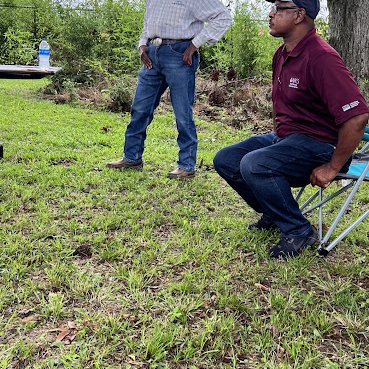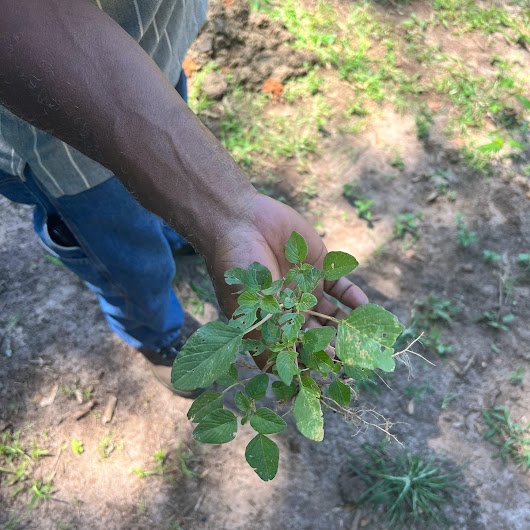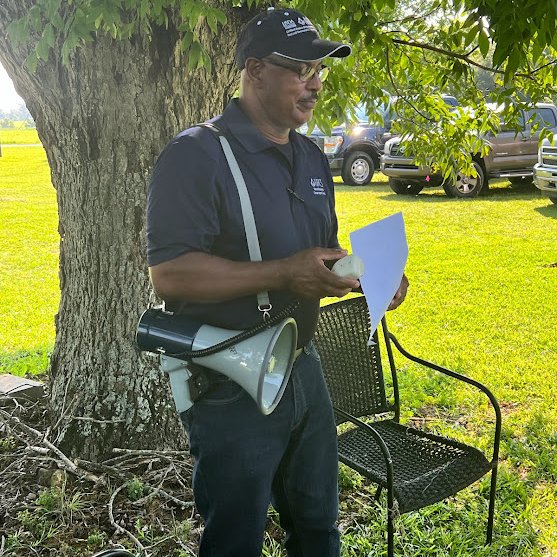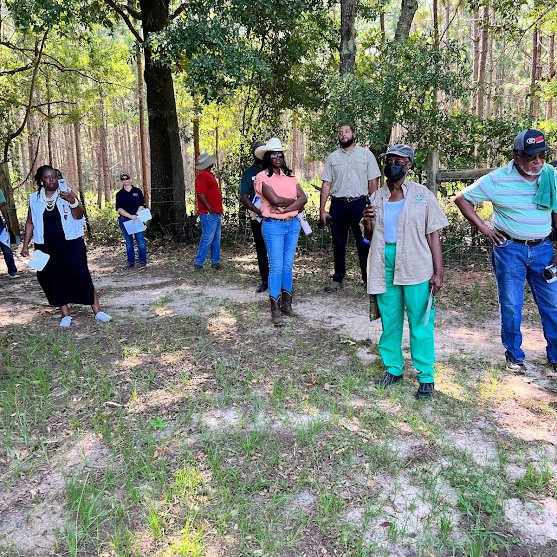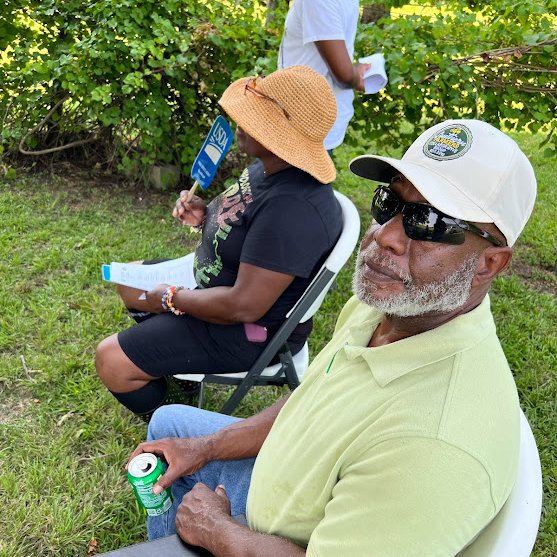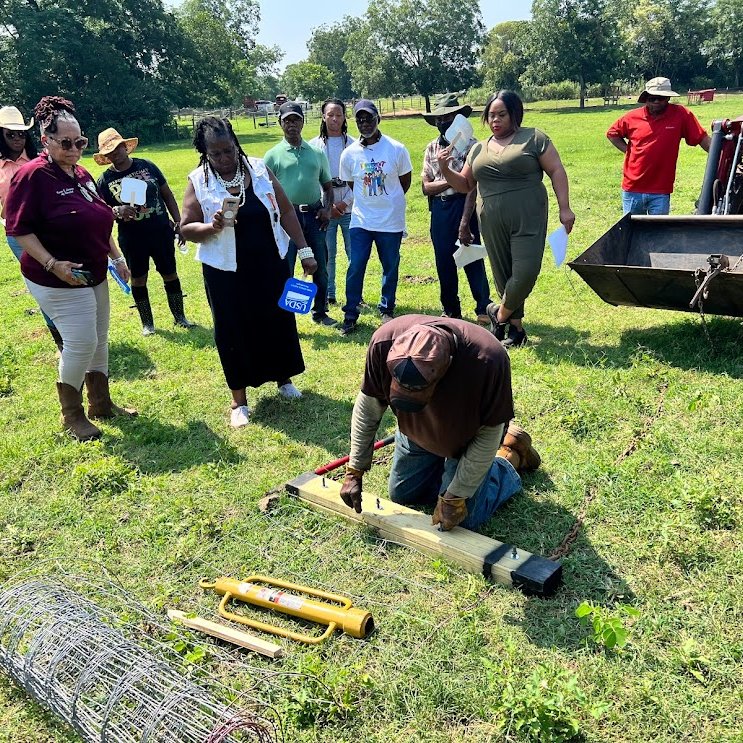The Natural Resource Conservation Service (NRCS) has taken significant strides in developing practices tailored to support underserved farmers and ranchers, aiming to enhance their agricultural productivity while also conserving the environment. These practices address the unique challenges faced by these individuals, who often lack access to resources and opportunities. Charlie Grace, South Region Outreach Coordinator, hosted workshops at Roe Edwards Farm and Cutts Orchard & Produce Farm outlining NRCS practices that target underserved farmers and ranchers:
Equitable Access Grazing Management Initiative:
NRCS recognizes the importance of equitable access to grazing lands for underserved farmers and ranchers. This initiative focuses on providing technical assistance to optimize grazing management practices that ensure sustainable forage production, enhance livestock health, and promote soil health. By tailoring recommendations to the specific needs of underserved producers, NRCS aims to improve their livestock operations' efficiency while maintaining ecosystem balance.
Diversified Crop Rotations for Small-Scale Farmers:
NRCS supports small-scale and underserved farmers through diverse crop rotation practices. These practices emphasize the rotation of crops that are suited to the local climate and soil conditions, promoting soil fertility, reducing pest pressure, and enhancing resilience to weather fluctuations. By integrating cash crops with cover crops and legumes, underserved farmers can enhance their agricultural productivity while also fostering soil health and sustainable land use.
Water-Efficient Irrigation Systems for Limited Resource Farmers:
Water scarcity often disproportionately affects underserved farmers. NRCS has developed water-efficient irrigation practices tailored to the resource limitations faced by these producers. Through the implementation of technologies such as drip irrigation and moisture sensors, NRCS helps underserved farmers optimize water usage, reduce water wastage, and increase crop yields. These practices not only support their economic viability but also contribute to water conservation efforts.
Community-Based Conservation Networks:
NRCS recognizes the significance of building community-based networks to empower underserved farmers and ranchers. These networks facilitate knowledge-sharing, skill development, and resource access among producers facing similar challenges. NRCS collaborates with community organizations, extension services, and agricultural cooperatives to provide technical training, workshops, and resources that address the unique needs of underserved producers, fostering sustainable agricultural practices and economic growth.
Soil Health Enhancement for Urban Farmers:
Underserved urban farmers often contend with limited space and degraded soils. NRCS supports these farmers by promoting soil health enhancement practices specifically designed for urban environments. These practices, such as raised bed gardening, composting, and agroforestry, enable urban farmers to maximize crop production in confined spaces while revitalizing soil fertility and structure.
Financial Assistance for Conservation Infrastructure:
NRCS offers financial assistance programs tailored to underserved farmers and ranchers, providing grants, loans, and cost-share programs to support the implementation of conservation infrastructure. These funds can be used for activities like building erosion control structures, establishing windbreaks, and installing water management systems. By alleviating the financial burden of infrastructure development, NRCS empowers underserved producers to adopt sustainable land management practices.
In essence, NRCS practices designed for underserved farmers and ranchers encompass a wide range of strategies, from technical assistance and community-building to customized conservation approaches. These practices acknowledge the diversity of challenges faced by underserved producers and aim to foster both agricultural productivity and environmental stewardship within their communities.

